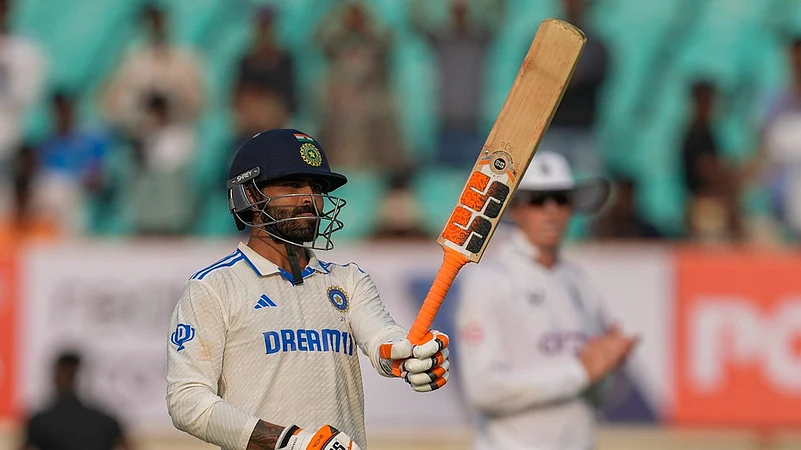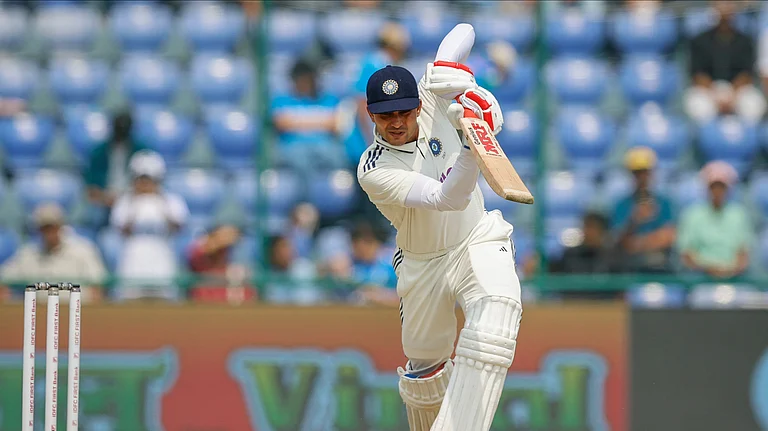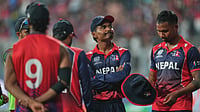On a day when three Indian batters stood tall, it was an icky moment involving two of them that lingered on viewers' minds, well after stumps were called. Rohit Sharma and Ravindra Jadeja scored centuries on Day 1 of the third Test against England in Rajkot, but it was debutant Sarfaraz Khan's breezy fifty that gave the hosts the impetus. He looked good for many more, but then that moment occurred. (Streaming | Cricket News)
It was the 82nd over of the innings. Jadeja was in the nervous 90s and had gone into a shell, in anticipation of his ton. After a risky single off the third ball, where Sarfaraz had to dive full length to make his ground, Jadeja took guard at 99 for the fifth delivery of the over.
James Anderson angled the ball in, and the Indian all-rounder worked it straight to the nearby fielder at mid-on, Mark Wood. Jadeja first called Sarfaraz for a quick single, then changed his mind, leaving the debutant stranded. Meanwhile, Wood took the stump out of the ground at the non-striker's end with a direct hit. Sarfaraz, who was batting so fluently, had to walk back dejected for a score of 62.
The miscommunication hurt India, and angered skipper Rohit Sharma, who was seen throwing his cap down in disgust in the dressing room.
Jadeja was left at the crease to ponder his folly. Though he returned unbeaten on 110 at stumps, the guilt of running his eager young partner must have weighed on the southpaw's mind. He took to Instagram to express his regret, apologizing to Sarfaraz for his "wrong call".
ALSO READ: Jadeja's Ton On Home Turf
"Feeling bad for Sarfaraz Khan. It was my wrong call. Well played," Jadeja's Instagram story read.

However, the youngster took the dismissal in his stride, saying such incidents are "a part of the game". Sarfaraz said at the press-conference later: "Miscommunication happens in cricket. Sometimes run-out happens, sometimes you get the runs."
The heartening attitude could hold the 26-year-old in good stead for the coming matches. But before that, he would be raring to make a mark with the bat in India's second essay.


























